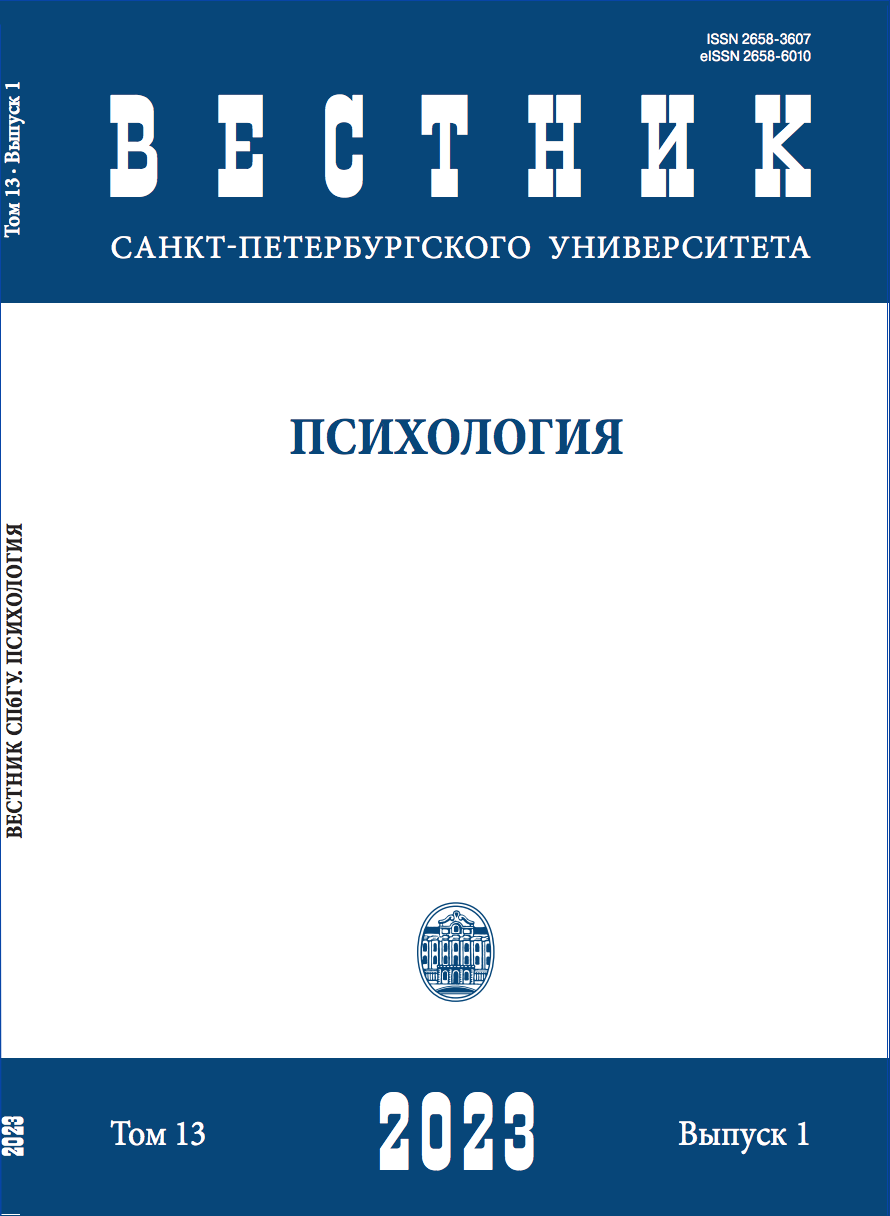Personality traits and psychological self-regulation of students online and offline: To the question of “digital” aspect of socialization
DOI:
https://doi.org/10.21638/spbu16.2023.102Abstract
Internet activities, especially in adolescents and young people, are related to higher emotions and the wider social roles, comparing to offline. The aim of the study was to reveal manifestations of personality traits and psychological self-regulation online comparing to offline, as well as their relationship with user activity, relationship to Internet and subjective well-being. 260 students filled the Brief Personality Scale, the Balanced Measure of Psychological Needs Scale, and the Cognitive Emotion Regulation Questionnaire, first with original instruction, and then with instruction to assess whether these features are more likely to manifest online or offline. Additional measures included scales of assessment of subjective well-being, user and combined activity, digital competence, attitude to technology, attitude to the digitalization of education. The suggested modifications of the Balanced Measure of Psychological Needs Scale, and the Cognitive Emotion Regulation Questionnaire had sufficient reliability-consistency, which allows use them in research aimed at comparing psychological manifestations online and offline. On the Internet, compared to offline, students were less satisfied with relatedness; they are less self-blaming, accepting, ruminating, focusing on planning, had lower scores on positive reappraisal, perspective taking, and catastrophizing. Higher levels of autonomy, acceptance, rumination, positive refocusing, and perspective taking were related to higher offline rather than online manifestations of these traits. User activity was associated with greater online autonomy, the combined (online and offline) activity — with online competence, and with greater excitability of the digitalization of education with online competence and positive reappraisal. Differences in the manifestations of psychological self-regulation online and offline were not related to subjective well-being. It can be assumed that students’ assessment of their possibilities of psychological self-regulation online, comparing to offline, describes their relationship to their Internet activities and self-image but not general relationship to technologies and digital competence.
Keywords:
psychological self-regulation, comparison of online and offline, basic needs, cognitive regulation of emotions, coping strategies, students
Downloads
References
References
Downloads
Published
How to Cite
Issue
Section
License
Articles of "Vestnik of Saint Petersburg University. Psychology" are open access distributed under the terms of the License Agreement with Saint Petersburg State University, which permits to the authors unrestricted distribution and self-archiving free of charge.




